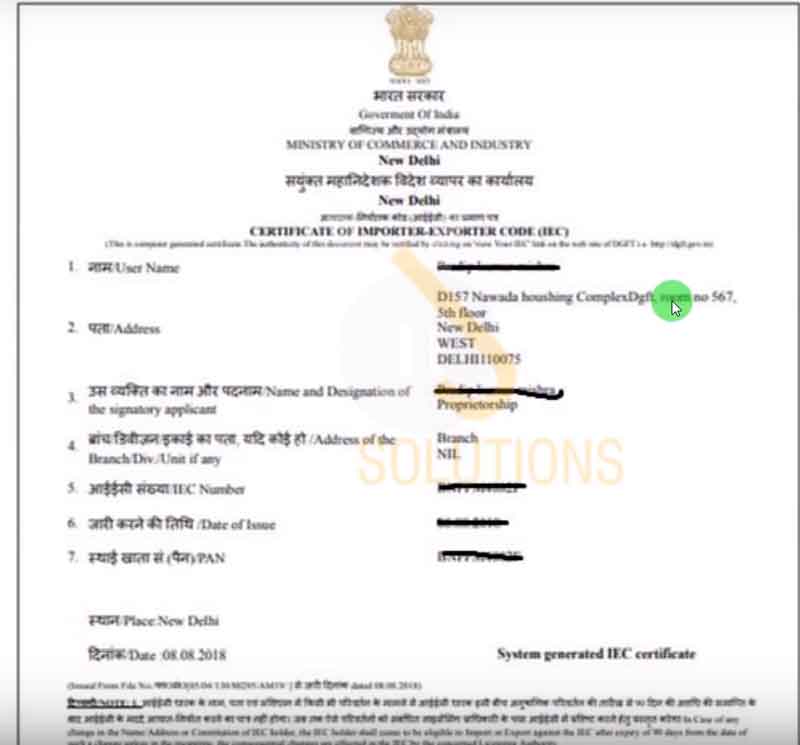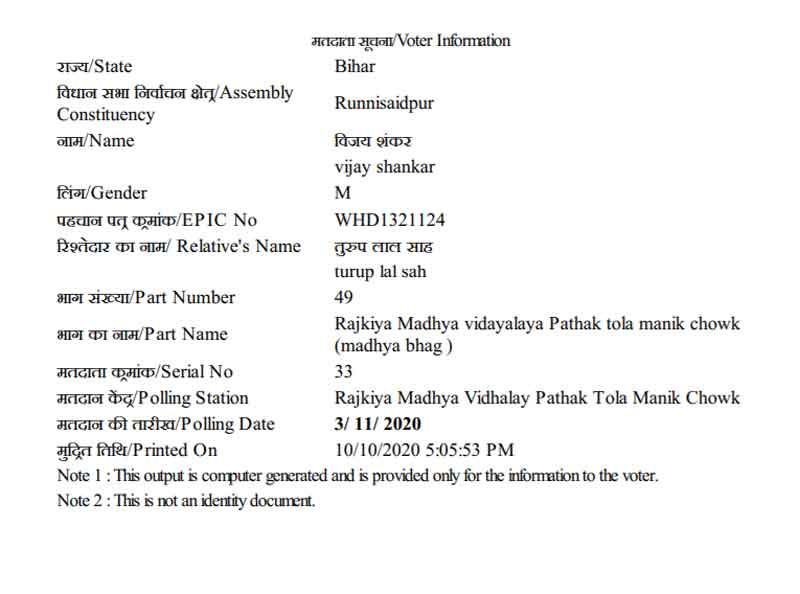South Carolina Education Lottery has the Non – linear and non-Lottery Association (MUSL) which is best known for Powerball. South Carolina Education Lottery, On January 31, 2010, completed the cross-sell lottery expansion, which also included Mega Millions, as did most US lotteries. Pick 3, Pick 4, Palmetto Cash 5, and an assortment of scratch tickets are SCEL-only games.
- South Carolina Education Lottery games with a draw
- Multi-jurisdictional games of South Carolina Education Lottery
- South Carolina Education Lottery’s Lucky for Life (LFL)
- South Carolina Education Lottery’s Powerball
- South Carolina Education Lottery’s Mega Millions
- South Carolina Education Lottery’s Mega Millions and Powerball were both expanded in 2010
- South Carolina Education Lottery Act
South Carolina Education Lottery games with a draw
Games of chance in the workplace
Pick-3
Pick 3 is chosen twice a day (in the morning and evening), except on Sunday, because only the evening drawings are available. It generates three sets of digits from 0 to 9. Prices, awards, and alternatives are all different.
Pick 4
Pick 4 is drawn 13 times per week and selects a four-digit figure. Prices, awards, and alternatives are all different.
Palmetto Cash 5
Every day, Palmetto Cash 5 is hosted. It selects 5 balls ranging from 1 to 38. Palmetto Cash 5 additionally includes a Power-Up multiplier that is chosen at random from a pool of 16 balls (eight balls are marked with the number 2; five are marked with 3; two are marked with 4, and one with 5). Each game costs $1, with the Power-Up option requiring an extra $1 for every game.
The jackpot starts at $100,000 (in contrast to Mega Millions’ Megaplier and Powerball’s Power Play, the Power-Up multiplier also applies to the jackpot).
North Carolina Education Lottery 2023 results winning numbers
Multi-jurisdictional games of South Carolina Education Lottery
Multijurisdictional games are a type of game that involves multiple jurisdictions.
South Carolina Education Lottery’s Lucky for Life (LFL)
This is available in 23 states and the District of Columbia as of June 28, 2021? Lucky for Life, which began in Connecticut in 2009 as Lucky-4-Life, started growing to be a New England-wide game three years later, and in 2015, it added eleven new lotteries. “The Game of a Lifetime” is LFL’s slogan. The Multi-State Lottery Association (MUSL) conducts the drawings. Lucky for Life is drawn every night (seven days a week) at 10:30 p.m. Eastern Time.

On September 17, 2013, Lucky for Life was updated to include a second “lifetime” reward tier as well as a cash option for either annuity tier; LFL has updated again in January 2015 to its present format. Each play of Lucky for Life costs $2.
It began as Lucky-4-Life in Connecticut in 2009 and has since modified its double matrix three times, expanded to a regional game, and eventually to “quasi-national” status. It also started offering cash instead of an annuity to “lifetime” winners.
Players select 5 “white balls” from a pool of 48 and a green “Lucky Ball” from a separate pool of 18 numbers. There are ten prize tiers total, two of which include a “lifetime opportunity” prize. The drawings are still on display in Connecticut.
Payouts for first and second place
Lucky for Life, unlike other American lottery games (with the exception of the 10-state Cash4Life), offers two annuitized reward tiers, both of which are marketed as “lifelong” wins. A first-prize winner can now select cash instead of the lifetime annuity, as of the 2013 game alteration; 2nd winners can likewise pick cash.
If the annuity option is selected, a first-prize winner receives, or shares, the equivalent of “$365,000 a YEAR, FOR LIFE” (payments are made according to the rules in effect at the time the ticket was purchased), with a 20-year guarantee; if the winner dies, payments are made to the winner’s estate. The second prize is $25,000 per year for the rest of your life.
Since January 2015, the Lucky for Life double matrix has consisted of 5 of 48 white balls and 1 of 18 green “Lucky Balls.” The original version, which was available exclusively in Connecticut, consisted of 4 of 39 white balls and 1 of 19 green balls, hence the name Lucky-4-Life. The format before the name change was 5/40 + 1/21; the 2013 game alteration (which included the addition of a second “lifetime” prize tier and a cash option) had 43 balls in each of the 2 drums.
- Rocket Boys 2 Download [300Mb, 700Mb, & 1Gb] Web Series SonyLIV Review
- Kerala University Admission 2024 UG, PG, PHD BED
- Citadel Web Series Download [4K, HD, 1080p 480p, 720p] Review
- Jack Ryan Season 3 Download 720p, 480p Review
The 5/43 + 1/43 version never yielded a top prize-winning ticket; the first winner under the current matrix was sold on November 19, 2015, in South Carolina. The winner, who claimed the prize anonymously in accordance with SCEL rules, was the first to select cash over annuity for the game’s top prize, as all previous top prize winners had received their rewards under the game’s pre-2013 terms.
The cash option for the first prize is $5,750,000; regardless of the payment option(s) selected, several winners, split the top prize. The cash option for the second-place reward is $390,000. The cash option amounts are determined by a unanimous vote of the LFL lotteries, and they are posted at least 30 days prior to the change(s).
Liability limits apply to the second and third prizes as well.
The prize pool is roughly 60% of the total sales.
The overall winning chances are 1:7.8
Founder of the game, which was formerly known as Lucky-4-Life. The drawings are still held in Connecticut.
In Iowa, the minimum age to play Lucky for Life is 21, while in Nebraska it is 19; in the rest of the country, it is 18.
Prior member
On April 8, 2021, Missouri stopped selling Lucky for Life and switched to Cash4Life three days later.
After the drawing on June 28, 2021, South Carolina and Minnesota withdrew from Lucky for Life.
South Carolina Education Lottery’s Powerball
45 states, the District of Columbia, Puerto Rico, and the US Virgin Islands participate in this lottery game. The Multi-State Lottery Association (MUSL), a nongovernmental organization founded by an agreement with lobbyists and US firms, is in charge of coordinating it. Powerball draws were held twice a week (Wednesday and Saturday) from April 19, 1992, until August 21, 2021; a third weekly drawing (held Mondays) was added on August 23, 2021.
Sam Arlen, Michelle Liles, and Laura Johnson present the drawings every Monday, Wednesday, and Saturday evening at 10:59 p.m. Eastern Time at Universal Studios in Orlando. Carol and Company conduct an audit of the designs. Starting October 7, 2015, the game has used a 5/69 (white balls) + 1/26 (Power balls) matrix to generate winning numbers, with odds of winning a jackpot of 1 in 292,201,338 each play. With the Power Play option, each play costs $2 or $3 (Powerball games used to cost $1; when Power Play began, similar games were $2.).
The official ticket sales cutoff is 10:00 p.m. Eastern Time; however, several lotteries close sales sooner. The drawings take place at the Florida Lottery’s Tallahassee facility. The minimum stated jackpot for Powerball is $20 million (annuity); the annuity is paid in 30 graded installments, although winners can opt for a lump sum payment instead. Because of the time value of money and because one check for a much bigger sum will be taxed at a higher rate, one lump sum payment will be less than the total of the 30 annual installments.
The Powerball game begins
Powerball was the first game to employ two drums when it was released in 1992. Having two drums to draw numbers from allows for additional manipulation by allowing for high jackpot odds, many prize tiers, and low overall odds of winning all at the same time (as explained later, a ticket can win by matching only one number). Steve Caputo of the Oregon Lottery proposed the two-drum concept. The Big Game (now Mega Millions) in the United States, Australia’s Powerball, and Thunder ball in the United Kingdom, Euro jackpot, and Euro Millions all employ the two-drum system.
Powerball drawings were held at Screens cape Studios in West Des Moines, Iowa, until 2008. Mike Pace, a longtime Iowa radio broadcaster who has hosted MUSL games since Lotto America debuted in 1988, was the host of the drawings. For the first time in 1996, Powerball went “on the road,” staging five remote drawings at the Summer Olympics in Atlanta.
Georgia was the lone state to abandon Powerball a few weeks later (Maine, which joined MUSL in 1990, left when Powerball began). Georgia joined the then-new The Big Game, the other major U.S. lottery group, in August 1996. It intended to sell tickets for both games for the remainder of 1996, but Georgia was kicked out of the MUSL within days, never to return until the 2010 cross-sell expansion.
The annuity was changed from 20 to 25 yearly installments on November 2, 1997, and a cash option was added. The annuities are made up of 30 graded installments that increase by 5% each year.
Florida’s government granted permission to participate in a multi-state game in 1998. It was supposed to offer Powerball, but Florida’s new governor, Jeb Bush, vetoed the move in early 1999, claiming that Powerball would harm the state’s other lottery games. On January 4, 2009, Governor Charlie Crist officially approved Florida to join the MUSL.
On March 7, 2001, an optional multiplier (named Power Play) was added, letting players spend an additional $1 every game to enhance non-jackpot earnings by up to five times. For each drawing, a wheel was included to pick the Power Play multiplier (the next year, the 1x was removed from the Power Play wheel).
South Carolina Education Lottery’s Mega Millions
Mega Millions (formerly called The Big Game in 1996 and renamed, temporarily, to The Big Game Mega Millions six years later) is a multi-jurisdictional lottery game available in 45 states, the District of Columbia, and the United States Virgin Islands as of January 30, 2020.
The inaugural Mega Millions drawing (The Big Game) was held in 2002; see below. Following the retirement of The Big Game’s name, all variants of the game used a gold-colored ball with six stars to represent the game’s founding membership, even though some lotteries insert its respective emblem in the ball.
On Tuesday and Friday evenings, including holidays, at 11 p.m. Eastern Time, Mega Millions is drawn. Mega Millions is run by a consortium of the lottery’s 12 founding lotteries; the games are held at the WSB-TV studios in Atlanta, Georgia, and are overseen by the Georgia Lottery. John Crow, Carol Blackmon, and Sabrina Cupit are the hosts.
The minimum Mega Millions announced prize is $40 million, paid in 30 graduated annual payments, increasing 5% each year (unless the cash option is selected; see below for variations by lottery on cash/annuity choice laws). When there is no winner of the top prize, the jackpot grows.
The prize is marketed as a nominal value of annual payments, as is customary in American lotteries. When a jackpot winner selects the cash value option (the default), the approximate present value of the payments is paid. The previous Mega Millions format debuted on October 19, 2013, and the first drawing took place three days later. Players must match 5 of 70 white balls and the gold-colored “MegaBall” from the second field of 25 numbers (5/70 / 1/25) in the current edition of Mega Millions.
Each game will set you back $2. All but one of the 47 Mega Millions jurisdictions provide a Megaplier option (plays with the Megaplier are $3 each), in which non-jackpot rewards are multiplied by 2, 3, 4, or 5. In January 2011, the Megaplier was made available to all Mega Millions of jurisdictions; it had previously only been available in Texas. Several competitors of the game offer the Just the Jackpot option, which costs $3 for two plays. On such a wager, only the jackpot can be won; none of the lower-tier prizes are accessible.
The greatest jackpot (amount won) in Mega Millions history was $1.537 billion for the drawing on October 23, 2018, in which only one winning jackpot ticket was sold.
South Carolina Education Lottery’s Mega Millions and Powerball were both expanded in 2010
The Mega Millions collaboration and the Multi-State Lottery Association (MUSL) announced an agreement in principle on October 13, 2009, to cross-sell Mega Millions and Powerball in American lottery jurisdictions, with many consumers referencing the two groups as the “Mega Power Lottery”. On January 31, 2010, 23 Powerball members started selling Mega Millions of tickets for their first drawing on February 2, 2010, and ten Mega Millions members started selling Powerball tickets for their debut drawing the next day.
Montana was the first jurisdiction to add either game after the cross-sell expansion, joining Mega Millions on March 1, 2010. Since the expansion, Nebraska (on March 20, 2010), Oregon (on March 28, 2010), Arizona (on April 18, 2010), Maine (on May 9, 2010), Colorado, and South Dakota (on May 16, 2010) have all joined Mega Millions.
There were 47 lotteries offering Mega Millions and Powerball as of January 2020; Florida joined Mega Millions in May 2013. (Mega Millions is not currently available in Puerto Rico, which has had a lottery since the 1930s.) Mississippi started selling lottery tickets in 2019, and on January 30, 2020, it entered Mega Millions.
Prior to the deal, the only stores that offered Mega Millions and Powerball tickets were those close to the border of jurisdictions that sold competing games.
In October of 2017, the current Mega Millions format was introduced. Each game costs $2. If enabled, the Megaplier multiplies non-jackpot payouts for an additional $1 every play. 2x, 3x, 4x, and 5x multipliers are available (a second-prize Megaplier play can win $5 million in cash). In California, and on Just the Jackpot bets, the Megaplier is not accessible (were offered.)
South Carolina Education Lottery Act
we’ll utilize the following terms:
(1) “Administrative expenses” exclude money set aside for prizes, regardless of whether the rewards are claimed, and amounts retained as a fidelity fund pursuant to Section 59-150-170.
(2) “Board” refers to the South Carolina Lottery Commission’s Board of Commissioners.
(3) The South Carolina Lottery Commission is referred to as the “Commission.”
(4) “Educational purposes and programs” are defined in Section 59-150-350 as educational fees and scholarships.
(5) “Executive director” refers to the South Carolina Lottery Commission’s Executive Director or his designate.
(6) An “immediate family member” is someone who is:
(a) A partner.
b) A sibling living in the same house.
(c) Claimed for income tax purposes as a dependent.
(7) “Lottery” or “lottery games” means a game of chance approved by the General Assembly and operated under this chapter, including, but not limited to, instant tickets, online lottery games, and drawing numbers, but excluding keno, close agreement betting, and casino gambling as defined in this section. Sections 12-21-2710, 16-19-40, and 16-19-50 prohibit the operation of lottery machines and lottery games, including video poker lottery games.
Access to and use of an electronic or mechanical machine designed for a lottery game permitted under this chapter must be limited to a lottery retailer and his employees only for the purpose of facilitating retail sales of lottery tickets, and such a machine must not dispense anything other than lottery tickets.
“Casino gambling,” as used in this item, refers to a location or business that conducts illegal gambling activities, but does not include the sale or purchase of lottery game tickets or shares; and “pari-mutuel betting,” as used in this item, refers to a method or system of wagering on actual races, such as races involving horses or dogs at tracks, and the distribution of winnings by pools.
8) “Lottery retailer” means a person who, on behalf of the South Carolina Lottery Commission, sells lottery game tickets or shares under a contract.
(9) A “lottery vendor” is a person who offers or intends to provide products or services to the South Carolina Lottery Commission under a procurement contract, but does not include a commission employee, a lottery retailer, or a state agency or instrumentality. The phrase refers to a publicly traded corporation that is the parent company of the contracting party in a procurement contract.
(10) “Member” or “members” refers to a Commissioner or Commissioners of the South Carolina Lottery Commission’s Board of Directors.
(11) “Minority business” means a company that satisfies the definition of a socially and economically disadvantaged small business as set forth in Article 21, Chapter 35, Title 11, and is specifically a company that:
(a) Is held at least 51 percent by one or more US citizens who have been certified to be socially and economically disadvantaged;
(b) In the case of a corporation, an individual found to be socially and economically disadvantaged owns at least fifty-one percent of all classes of voting stock in the corporation.
(c) In the case of a partnership, an individual or individuals determined to be socially and economically disadvantaged own at least fifty-one percent of the partnership interest, or whose management and daily business operations are controlled by individuals determined to be socially and economically disadvantaged. Those people must be active in the day-to-day management and operations of the company. As used in this item; “small business” refers to a company that satisfies the definition of a small business as defined by the Small Business Administration, a federal agency.
(12) “Net profits” refers to all money generated by the sale of lottery game tickets or shares, as well as all other funds generated by the lottery games, less running expenditures, and prizes.
(13) “Operating expenses” include, but are not limited to, prizes, commissions, and other compensation paid to a lottery retailer, advertising and marketing costs, rental fees, personnel costs, capital costs, depreciation of property and equipment, funds for compulsive gambling education and treatment, amounts held in or paid from a fidelity fund pursuant to Section 59-150-170, and other operating costs.
(14) “Human” refers to a natural person, a corporation, a partnership, an unincorporated organization, or any other legal body.
(15) “Prize” refers to a reward, a present, or something of worth, regardless of whether it is subject to conditions or limits.
(16) “Profits earned” refers to all lottery money earned from the sale of lottery game tickets or shares, as well as all other monies received by the commission from the lottery.
(17) “Share” refers to an intangible interest in a lottery ticket obtained through assignment, contractual participation, or other ways.
(18) “Ticket” refers to a piece of paper issued by the South Carolina Lottery Commission that allows you to play a lottery game.
- Jailer Movie trailer Review
- OMG 2 Trailer Review watch online in HD
- Tali movie trailer review watch in Full HD 1080p
- Bholaa Shankar Trailer Review watch online in HD 720p
- [ डंकी टीजर ] Dunki Drop 1 Treaser watch online Review shahrukh khan Movie
- One Friday Night trailer review watch online in HD 70p JioCinema
- Namo Bhoothathma 2 Trailer Review watch in HD 4k
- Kaalkoot trailer Review watch online in HD 1080p
- Ajmer 92 Trailer Review watch online in HD 1080p
- Trial Period Trailer Review watch in HD 720p



